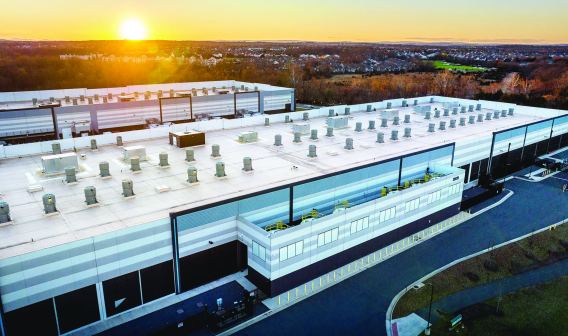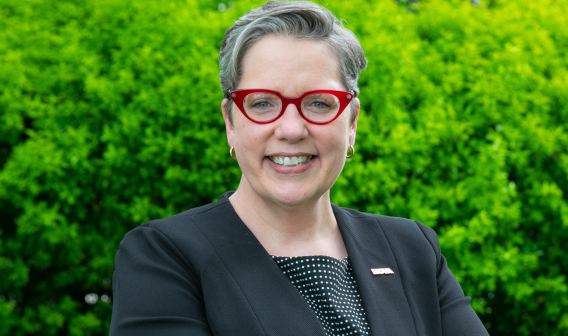Virginia has been an important place for Amazon and AWS going back to the establishment of Amazon Web Services in 2006, which is when our first data centers were established here. Since that time, we have invested $63.9 billion in Virginia from 2011 through the end of 2023, building out our AWS data center infrastructure there. That number, as we look at this year, is expected to be around $75.4 billion since 2011, so we’re continuing to invest heavily in the Commonwealth.
Welch: We thank you for that commitment to Virginia. To support that growth, you all have had an active partnership with Northern Virginia Community College (NVCC), creating an associate’s degree in cloud computing. Are there any other Virginia partners working with the company on workforce development?
Kellogg: That partnership with the Northern Virginia Community College system has really been a critical one for us. We first started our cloud computing associate degree partnership with them in 2018, when we established the first associate cloud computing degree in the nation. Really, that was just the beginning. That program has grown to over 13 community colleges across the Commonwealth that are now currently offering cloud computing programs to their constituencies. In 2019, we supported a collaboration between NVCC and George Mason University to create a pathway for community college students to earn a master’s degree. And that collaboration actually won the 2019 Partnership of the Year award from Higher Ed Dive, which was a nice early accomplishment and recognition of that program.
Another close partner has been school districts throughout the Commonwealth. We’ve worked with a number of institutions to offer AWS Girls Tech Days, to connect thousands of students around our data centers in the clusters that we’ve built with Women in Tech to give young girls a head start when pursuing a career in the technology industry. We’re super proud of that program. We’ve also established 38 learning labs called AWS Think Big Spaces, to give students in communities where our data centers operate a place beyond the classroom to get hands-on experience with technology.
Welch: How do data centers play a role in the proliferation of artificial intelligence?
Kellogg: Cloud is really foundational to artificial intelligence and the emergence of generative AI technologies. When you look at today’s AI and machine learning workloads, it requires enormous amounts of compute, storage, and networking capacity, all of which can be provided by large-scale data centers, of course, which AWS owns and operates. And AWS is known for its scale, and that’s why most companies that need access to on-demand infrastructure capacity at scale for AI workloads come to our company.
Since we’ve been building large-scale data centers for more than 15 years and GPU-based servers for more than 12 years, we have a massive existing footprint for AI infrastructure around the world. Virginia is a very, very big part of that infrastructure.
Welch: What are the unique advantages that we have here that can position Virginia as a leading hub for AI innovation and development?
Kellogg: Historically, Virginia has positioned itself as an environment to make data centers flourish more broadly. It’s always been data center-friendly, and I hope that continues to be the case. It starts with focusing on the power of public-private partnerships. Government agencies are among the fastest-growing adopters of the cloud, and to better serve constituents and achieve their missions, they are leveraging technologies used by the private sector to improve that customer experience with citizens and constituents and of course the overall business operations of the Commonwealth.
Another key ingredient in Virginia’s competitiveness is the talent with the right technology skills to build on our progress. That’s a big part of why we’ve invested so heavily here and also have HQ2 here in Virginia. Virginia’s highly rated college and university system must continue to produce highly skilled, technical talent, and businesses like ours should be encouraged to do their part, like with some of the programs that I mentioned earlier. That’s why we have partnered with institutions and education at every level, ranging from the public primary and secondary schools to upskill programs created to help veterans develop in-demand cloud skills and other technical skills.





